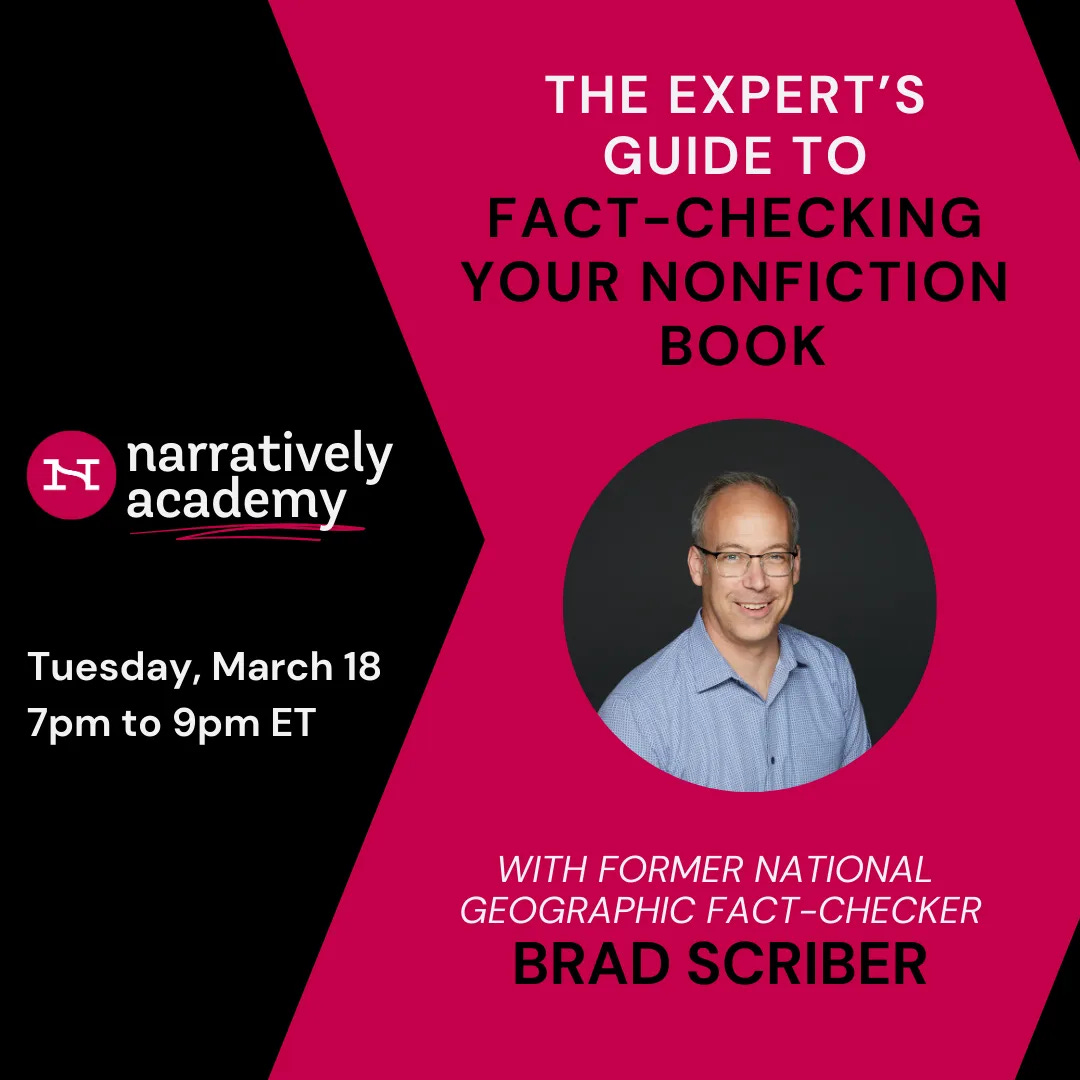Things I Love: When Writers Brag About Their Fact-Checking
It’s one of the most essential—and under-appreciated—parts of the publishing process. That’s why I love to see people shouting out their fact-checking successes.
Next week at Narratively Academy, longtime National Geographic fact-checker Brad Scriber joins us for a special seminar, The Expert’s Guide to Fact-Checking Your Nonfiction Book. Today, Brad’s helping demystify fact-checking and shouting out those who celebrate it.
If there’s one thing I’d like writers and editors to do differently, it’s this: You really should talk about the work that went into fact-checking your book, article or podcast.
On rare occasions, I see writers, publications or podcast producers pull back the curtain and reveal the time and effort that goes into fact-checking their work. For example, Hidden Compass just published a Q&A with their fact-checker about her process. The Atlantic has an ad in rotation on social media that shows one of their articles dripping with annotations and notes after being reviewed for accuracy. Not long ago, Radiolab created a lead-in interview explaining how their team confirmed a claim that whale milk tastes like butter.
As a long-time fact-checker, nothing could make me happier — not necessarily the whale milk, but the process. I wish bragging about getting the story right were more common. This is usually invisible work — that you only ever hear about if a fact is wrong — but it deserves a spotlight.
This is especially true for book authors who have to do the fact-checking work themselves. Most book publishers don’t pay for fact-checkers, meaning authors have to either foot the bill on their own, or put in the time to check their own work. Especially if you do that work yourself, that is a laudable investment of time, and one we should all talk more about. Here are a few reasons to talk about the steps you took to double-check your writing.
1. It’s Above and Beyond
The outlets above trumpeted their efforts because not everyone does this. Fact-checking is an investment that will set your work apart, but the investment is hidden. You know that most publishers don’t cover the cost of fact-checking. If you took this step, you should tout that exceptional effort. Explain to your readers that it’s up to the writer to pay for a fact-checker to scrutinize a book manuscript and tell them why you chose to do so.
2. It Will Build Trust
You invested in accuracy (with time and/or money) because you value the relationship with your readers. They want information sources they can trust, and you want to be trustworthy. Quantifying the time you spent going over things one last time will invite that trust.
3. It’s Part of Your Writerly Craft
Sharing your process reveals you as a conscientious writer. An exacting review, like other forms of editing and revision, is part of the nonfiction writing process. Explain what you’ve done to go back over your writing before it was released to the public. Talk about the number of sources you consulted for the key parts of your work, and highlight something that you, or your fact-checker, caught and corrected during a read-through.
Dedication to rooting out errors shows that you are a writer who puts care and effort into telling a true story. And that’s something to celebrate!
If you want to learn more about how to do all this, join me next Tuesday, March 18, for The Expert’s Guide to Fact-Checking Your Nonfiction Book.





